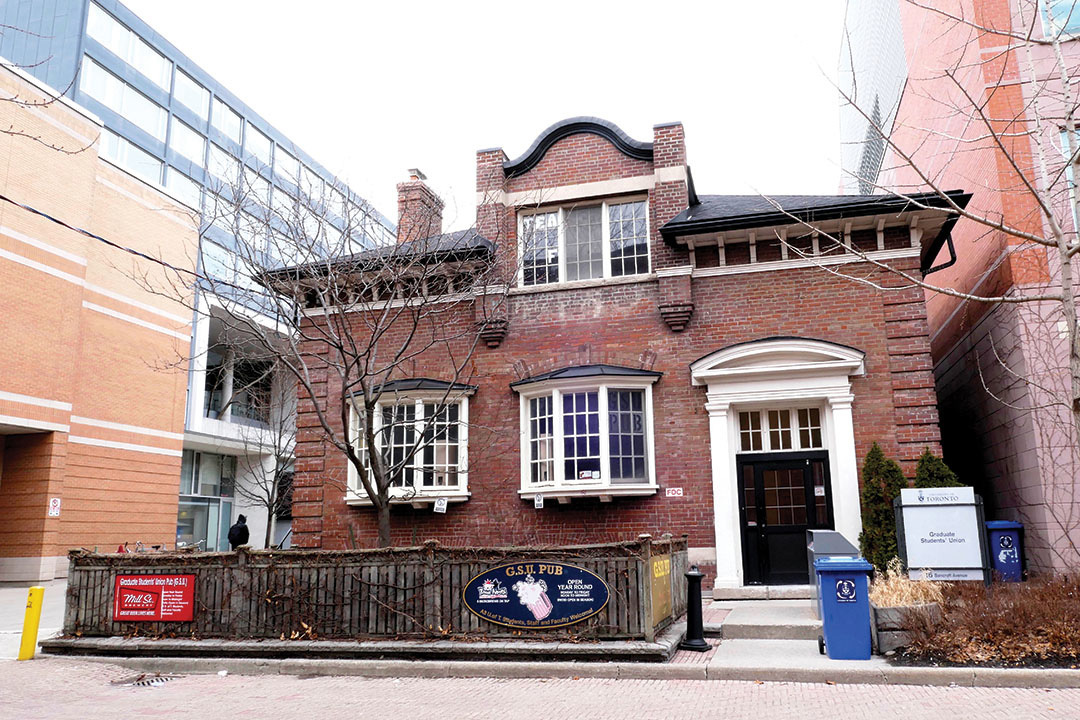U of T has officially decided to withhold student fees that were previously allocated to the Boycott, Divestment and Sanctions (BDS) caucus of the University of Toronto Graduate Students’ Union (UTGSU). The UTGSU confirmed that it has been notified of the change by way of a letter from the university. The withholding of the fees will begin at the end of March.
The decision to withhold fees for the BDS caucus follows a 2021 ruling from the Complaint and Resolution Council for Student Societies (CRCSS), which decided in February of last year that the BDS caucus had broken the UTGSU’s own Anti-Discrimination Policy. The CRCSS ruled that the caucus’s fee — which is currently mandatory for all graduate students — discriminates based on nationality, and recommended, among other things, that the fee become optional. It gave the union three and a half weeks to accept the recommendations and provide a plan for how it would implement them.
However, the UTGSU voted to reject the CRCSS recommendations on the grounds that its members voted democratically to create the caucus. Later, the union created a reserve fund in case it lost funding due to the decision.
Background on BDS
The BDS movement attempts to pressure Israel to end its occupation of Palestinian territory through economic boycotts. The BDS caucus was an ad hoc committee until 2019, when the UTGSU voted to make it a permanent standing committee.
The BDS movement has long been controversial within the UTGSU and within other student groups on campus. Critics of the movement claim it is antisemitic, and one student lodged a complaint against the caucus for antisemitism. However, its proponents dispute the claim that the movement is antisemetic in nature.
More recently, the University of Toronto Students’ Union (UTSU), which represents full-time undergraduate students at U of T, voted in favour of divesting from “firms complicit in the occupation of Palestinian Territory” at its Special General Meeting. The decision was contentious, and many attendees spoke for and against it. It remains unclear what the motion will mean for the operations of the UTSU.
Responses from community
U of T News covered some of the university’s reasoning, clarifying that “The panel did not call for the BDS caucus to be abolished. It also did not consider whether the BDS movement is antisemitic.”
“The UTGSU has had a year to implement the ruling of the CRCSS,” said U of T Vice-President and Provost Cheryl Regehr to U of T News.
In a statement to The Varsity, the UTGSU wrote that “At the current time, the UTGSU has not deviated from its stance that the democratic, autonomous will of UTGSU members should be respected.”
The statement further affirmed the UTGSU’s commitment to the BDS movement, writing that the union is “committed to supporting justice for Palestine based on previous decisions made through its democratic, autonomous processes to such effect.”
In a joint statement on Instagram, Hillel U of T and Hillel Ontario, both of whom have often been critical of the BDS movement, applauded the decision to withhold fees. “[The UTGSU] has held the dubious record of being the only student union in the country to use mandatory student fees to fund a discriminatory committee promoting the Boycott, Divestment & Sanctions (BDS) campaign against Israelis,” reads the statement.
The statement further notes that the decision affirms Hillel U of T’s stance that “the UTGSU’s obsessive and discriminatory focus on Israel and Jewish students has overstepped the bounds of what is acceptable.”
The Varsity has reached out to the UTGSU’s BDS Caucus for comment. Hillel U of T has declined to provide further comment.


